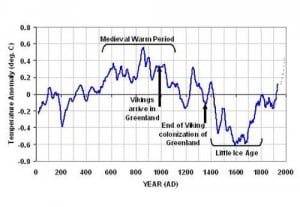Commentary
-
Commentary
Prudence: Who’s Minding the Store?
Regulators are asked to balance a societal need with the cost burden placed on those who pay for the service. Sometimes they forget that it’s other people’s money at stake.
-
Commentary
Solving the Challenges of Growing Energy Demand
The electric power generation landscape in both America and the rest of the world is poised to undergo a fundamental transformation in the next several decades. Global energy consumption is projected to rise dramatically by 2035, and the methods by which we generate electricity and the fuels we choose to use will begin to change as well.
-
Commentary
How to Hire an Honest Staff
It’s not just hard finding good help these days. It’s hard finding honest help, too.
-
Commentary
Frisbees to Flatulence
I recently outlined the top four regulatory obstacles facing existing U.S. coal-fired power plants in the coming years. That list, although not comprehensive, covered issues that owners of coal plants should be concerned about in the near term. However, in the long term, there is one regulatory development that dwarfs all others.
-
Commentary
Australians Say "No" to Carbon Tax
Australian prime minister Julia Gillard invited Jill Duggan, of the European Commission Directorate General of Climate Action and the UK government’s head of international emissions trading, to help bolster Gillard’s push for support of a carbon tax early in March. However, when interviewed on a morning show, Duggan was unable to estimate either the cost or the benefits of the UK’s program. In fact, the interview was a complete disaster.
-
Commentary
Put the REINS on EPA
The "Regulations from the Executive in Need of Scrutiny" Act could put the kibosh on the EPA’s greenhouse gas regulatory surge.
-
Commentary
Electricity: A Fuel of the Future
The recent tensions in the Middle East and their impact on oil and gasoline prices remind us that the U.S. remains heavily dependent on foreign nations—some of them unstable—to meet many of our energy needs. Of course, oil will continue to have an important place in our energy mix, and expanding our domestic reserves makes sense.
-
Commentary
Energy, GDP, and Thomas Malthus
A new article in Bioscience looks again at the connection between economic growth and energy demand, shedding little light on the subject and further demonstrating the limits of neo-Malthusianism. Of course there is a relationship between energy and economic growth, but what is it? No answers here; only a doomsday prediction.
-
Commentary
Why Most Published Research Findings Are False
Those aren’t my words—it’s the title of a 2005 article, brought to my attention by Cal Beisner, which uses probability theory to "prove" that "…most claimed research findings are false." While the article comes from the medical research field, it is sufficiently general that some of what it discusses can be applied to global warming research as well.
-
Commentary
Got Remedies? NLRB Acting General Counsel Does, and Employers Should Beware
National Labor Relations Board Acting General Counsel Lafe Solomon is continuing his focus on remedies in unfair labor practice cases involving union organizing campaigns. On September 30, 2010, he issued a memorandum on Section 10(j) injunctions for discriminatory discharges during such campaigns. Now he has released another memorandum, this one targeting remedies regional offices should seek when they issue complaints in ULP cases involving campaign activity.

